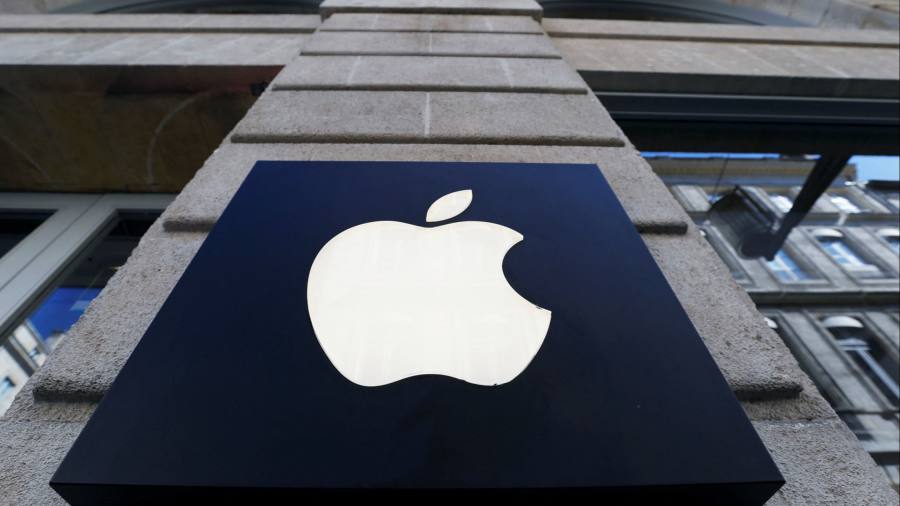Apple said on Thursday that revenues shrank for a second straight quarter compared with a year ago, though its results were still ahead of analysts’ forecasts as iPhone sales bounced back more quickly than expected.
Total revenues fell 2.5 per cent year-on-year to $94.8bn, driven by steep declines in sales of Mac computers and iPads, while net profits were down 3.4 per cent to $24.2bn. Analysts had predicted $93bn in revenue and $22.6bn in net profits, according to Refinitiv.
“The macro environment is tougher than it was, and that affected the PC and tablet industry,” finance chief Luca Maestri told the Financial Times.
Maestri blamed “significant headwinds in foreign exchange”, saying they accounted for a 5.4 percentage point hit to revenue. In constant currency, he said, revenues would have grown 3 per cent.
Sales of the iPhone, which accounted for 54 per cent of total revenue, rose 2 per cent to $51.3bn, ahead of estimates at $48.9bn.
The results suggest that some customers who were unable to purchase a new phone in the holiday quarter, when Apple was battling supply chain disruptions in China related to Covid-19, may have postponed their purchase.
“We saw significant acceleration in iPhone revenue from December to March,” Maestri said, recalling that smartphone revenues had declined 8 per cent in the previous quarter. “The ones we lost in December, we got some back in March and we’re going to get the rest at a later point.”
Services, a division that includes App Store sales and recurring digital subscriptions, rose 5.5 per cent to $20.1bn, in line with forecasts but slower than the 17 per gain recorded a year ago. The fast-growing and high-margin unit now has 975mn paying customers — up 150mn in the past 12 months — and accounts for 22 per cent of all revenues.
Mac sales fell 31 per cent, worse than the 25 per cent decline that analysts had expected amid broader weakness in the PC market. iPad sales were also down 13 per cent, as expected, while the wearables division, which includes AirPods and the Apple Watch, were 1 per cent lower.
Dipanjan Chatterjee, analyst at Forrester, said these declines were “a harbinger of the uphill climb most consumer brands will face in the months ahead as consumers grow increasingly skittish about overextending themselves”.
“The pandemic spending euphoria is over,” he added.
Regionally, Apple results were buoyed by emerging markets. Sales in Asia, excluding China and Japan, were up 15.3 per cent to $8.1bn. Sales fell about 3 per cent in China and 8 per cent in the US.
Chief executive Tim Cook said in a press release: “We are pleased to report an all-time record in services and a March quarter record for iPhone despite the challenging macroeconomic environment, and to have our installed base of active devices reach an all-time high.”
Shares in the $2.6tn tech group have climbed by about 32 per cent year-to-date. The stock rose nearly 2 per cent in after-hours trading following the results.
Apple announced its board had authorised the spending of $90bn on share buybacks in the coming 12 months, as expected. Apple has repurchased nearly $600bn in shares over the past decade, according to S&P Global Market Intelligence.
Read the full article here




